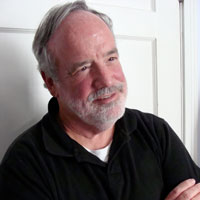Our Fetish For Secrecy: A Silent Population

David R. Dykes
The media frenzy over reports of government listening in on phones and hacking into computers and the controversy surrounding Snowden’s “wikileaking” is, to say the least, disturbing. How seriously should we be taking these reports? Fact is, national security is serious business, and we, as citizens of a democratic government and people of religious faith, should examine these issues with clear and, I believe, self-critical eyes.
Our government is a system, a big, complex system. And because it is a system, we can compare it to the way a family is a system. Government systems and family systems run on agreements between the members of the system. In family systems that are dysfunctional, secret-keeping agreements are critical. Dysfunctional family systems depend on each member buying in, in one way or another, to keeping a secret of some kind. Mom’s alcoholic, dad’s physically or sexually abusive, brother is gay or sis is addicted to prescription drugs. Family members buy in to keeping the secret so the money keeps flowing or the social placement is maintained or reprisal from one or more of the other members is feared.
It is uncanny how in such pathological family systems, even members who don’t want to keep the secret; who in fact do not benefit by keeping the secret can be persuaded to join the conspiracy. It’s twin, denial, is always present, too. Sometimes the secrets of the family are so frightening until every member agrees that whatever is being covered up is not really happening at all.
Secret-keeping is absolutely essential in dysfunctional family systems. Secret-keeping is absolutely essential in dysfunctional government systems, too. Secret-keeping divides, deters, and damages relationships in family, government, and in religious institutional systems.
In 2003, a great majority of Americans were willing to buy President George W. Busch’s announcement of a pre-emptive U.S. military strike against Iraq and Saddam Hussein because Iraq was definitely shielding the Islamist terrorists responsible for 911 and manufacturing “weapons of mass destruction.” The secret was: we’re not actually going to invade a sovereign nation in the Middle East because it harbors terrorists or because we know for a fact that it is building up a nuclear arsenal so it can attack western nations, mainly the U.S. We’re actually going to invade this country because we want to protect our economic interest there – oil. As in a dysfunctional family system, the secret was protected by denial.
Remember, the government is us. We insist that we don’t want to be people who just go in and take what belongs to someone else. We don’t want to be a country that loots other people’s stash. We don’t want to be a nation that sends its young women and men into battle where they will be maimed and traumatized and killed so we can have more of what we want. Or maybe we were willing to because we didn’t want to face potential energy hardships or economic downturn or the kinds of personal sacrifice that our forebears made. Or maybe we just didn’t want the U.S. to be held accountable to the rest of the world for it’s military and economic and religious overreach.
So we kept the secrets and carried on the denial and stayed at home to prosper, get fat, wash our hands and live like we wanted.
So do our faith traditions have anything distinctive to say in relation to alleged government overreach and how do we assess the ethics of those who expose secret government operations in the name of preventing abuse?
Yeah, they do. Clearly they do. But secret-keeping denial about what we Americans really want is in the way. We have learned to keep the secrets and live the denials that keep us stuck where we are, paralyzed with our profits and our protections and our privileges
